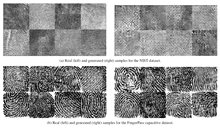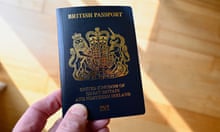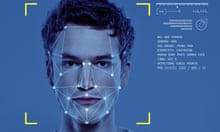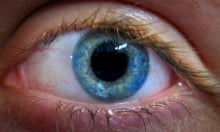The iris-recognition feature in Samsung’s new Galaxy S8 smartphone has been defeated by German hackers, less than a month after it hit shelves around the world.
The Guardian’s product and service reviews are independent and are in no way influenced by any advertiser or commercial initiative. We will earn a commission from the retailer if you buy something through an affiliate link. Learn more.
A video posted by the Chaos Computer Club, a long-running hacker collective formed in Berlin in 1981, shows the security feature being fooled by a dummy eye into thinking that it is being unlocked by a legitimate owner.
The artificial eye – which is made using just a printer and a contact lens to match the curvature of the eye – is best created using pictures of the iris taken with a digital camera in night mode.
“The security risk to the user from iris recognition is even bigger than with fingerprints, as we expose our irises a lot,” said the group’s spokesperson, Dirk Engling. “If you value the data on your phone – and possibly want to even use it for payment – using the traditional pin-protection is a safer approach than using body features for authentication.”
Engling warns that “under some circumstances, a high-resolution picture from the internet is sufficient to capture an iris”, but a Samsung spokesperson said it would be “impossible” to use a normal picture of an iris, however high resolution it is, to fool the security feature.
In a statement, the company said the attack requires “a rare combination of circumstances” to pull off. “It would require the unlikely situation of having possession of the high-resolution image of the smartphone owner’s iris with IR camera, a contact lens and possession of their smartphone at the same time. We have conducted internal demonstrations under the same circumstances, however, [and] it was extremely difficult to replicate such a result.”
The Galaxy S8 also ships with a facial recognition feature, which was defeated before the phone was even on sale: it can be tricked with something as simple as a printed-out picture of the owner. The ill-fated Note 7 also had the same infrared iris scanner as the Galaxy S8.
CCC is the same group that first fooled Apple’s TouchID fingerprint sensors, just weeks after the first iPhone 5s hit the market. That hack was carried out with graphite powder, a laser etching machine and wood glue, all to trick Apple’s systems for ensuring that a real finger was being used, but required physical access to something the target had touched (a year later, another hacker demonstrated a way to generate working fingerprints from high-resolution photos).
This hack is even simpler, and could conceivably be pulled off with just a photo lifted from Facebook, a conventional laser printer and a contact lens. “By far most expensive part of the iris biometry hack was the purchase of the Galaxy S8 smartphone,” the hackers said. “Ironically, we got the best results with laser printers made by Samsung.”
In its marketing materials, Samsung claims “the patterns in your irises are unique to you and are virtually impossible to replicate, meaning iris authentication is one of the safest ways to keep your phone locked and the contents private”.
The revelation will add more fuel to the debate over the use of biometric features as security passes. While biometrics can be more convenient, and harder to steal or fake than passwords, they come with one large trade-off: users cannot change them if they do get compromised.
- This article was amended 24 May to clarify that CCC did not claim a social media picture of an iris could be used to unlock a phone, and to add Samsung’s statement.
- Samsung and Huawei fingerprint scanners can be fooled using an inkjet printer








